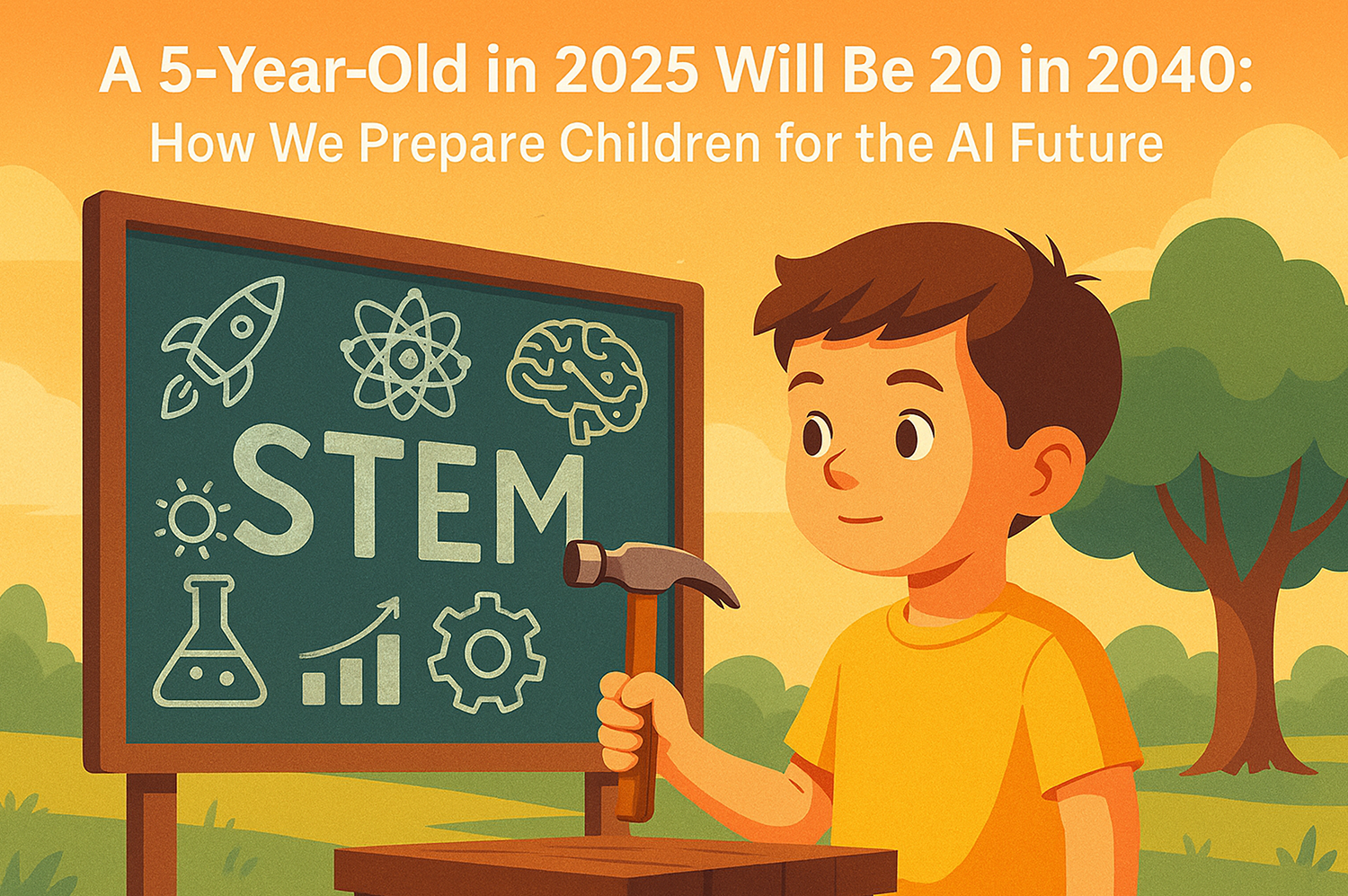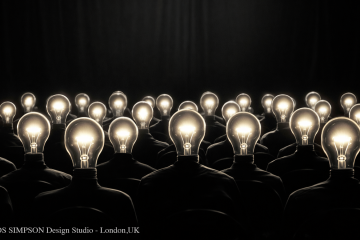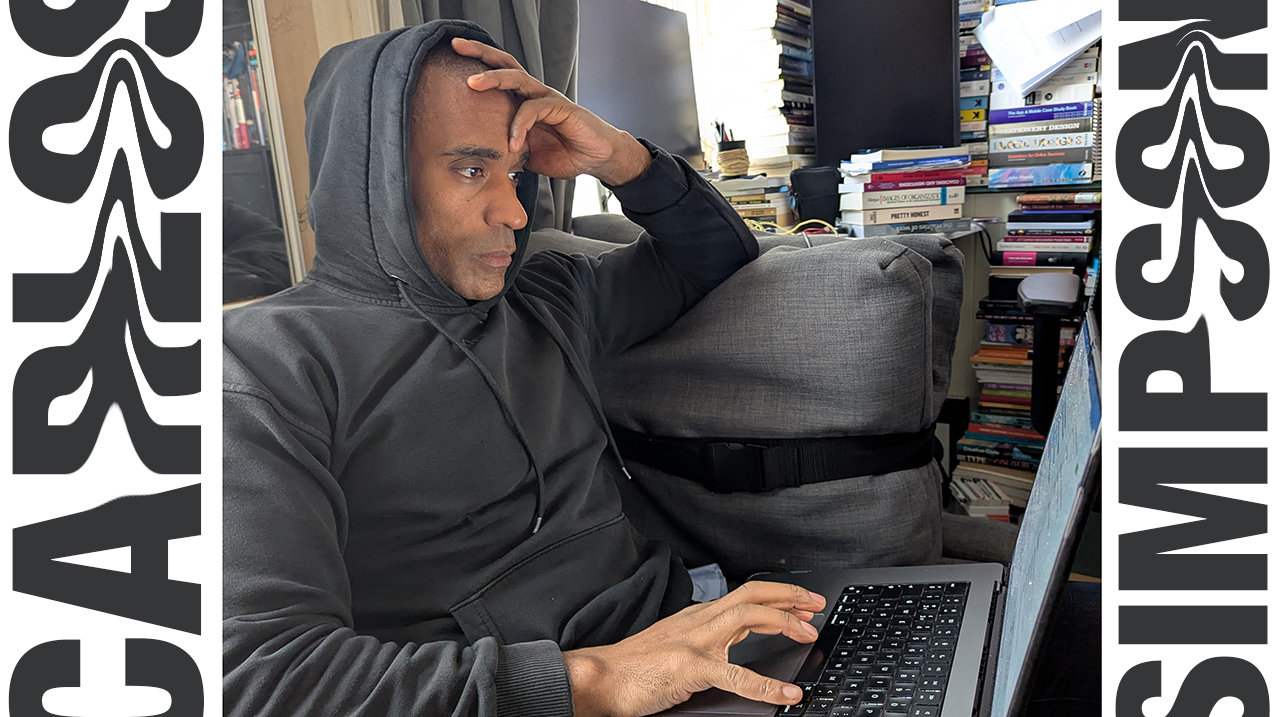Thank you for reading this post; don't forget to subscribe!
A child who is five years old today will be twenty years old in 2040. By then, the world will look radically different. Artificial intelligence is already reshaping industries, and jobs that once offered young people their first steps into the workforce – retail, trucking, fast food, and customer support – are either disappearing or being transformed.
This isn’t science fiction. It’s happening right now. It forces us to face an uncomfortable truth: the education system that failed you, and failed me, is on track to fail the next generation on a monumental level.
The System We Have vs. The System We Need
Today’s schools are still built on an industrial model. Children are rewarded for listening, memorising, and reproducing knowledge on standardised tests. Those who excel at following orders and regurgitating information are praised.
But let’s be honest: what are they really learning? Compliance. Obedience. Routine.
The problem is that automation does routine better than humans. In a world where machines handle repetitive tasks, the skills that will matter most are the ones schools often ignore:
- Critical thinking and problem-solving
- Adaptability and continuous skill development
- Hands-on, real-world experience
UNESCO and the OECD have already called for urgent change, emphasising that creativity, collaboration, and lifelong learning are the cornerstones of future-ready education (UNESCO, 2021; OECD, 2018.
What Schools Teach vs. What the Future Demands
What schools emphasise today versus the skills young people will need in the AI-driven future.
How Parents Can Future-Proof Their Children
If the system is slow to change, parents and communities must lead. You don’t need to be a professional educator, you need to create conditions where children learn to think, build, and adapt.
1- Encourage STEM + Creativity
Children should have tools in their hands hammers, paintbrushes, coding apps. Building, breaking, and experimenting nurtures both logic and imagination.
2. Teaching Logic and Discernment
Critical thinking isn’t about knowing what to think, but how to think. Encourage debate, puzzles, and reflection. Research shows metacognitive strategies (“thinking about thinking”) significantly improve adaptability and problem-solving (Dignath et al., 2008.
3- Create Real-World Experiences
Starting a lemonade stand, growing a garden, or joining a community project builds resilience and agency. Project-based learning has been proven to deepen understanding and boost engagement Harvard GSE, 2015.
The Call to Action
We can’t predict every job that will exist in 2040. But we do know this: the world will belong to those who can adapt, solve problems, and keep learning.
That means:
- Let children explore, fail, and try again.
- Give them responsibility early.
- Connect learning with the real world.
A young person raised this way won’t just survive the AI era, they’ll shape it.
References
- UNESCO (2021). Reimagining Our Futures Together: A New Social Contract for Education.
- OECD (2018). The Future of Education and Skills: Education 2030.
- Dignath, C., Buettner, G., & Langfeldt, H.-P. (2008). How Can Primary School Students Learn Self-Regulated Learning Strategies Most Effectively? Educational Research Review, 3(2), 101–129.
- Harvard Graduate School of Education, (2015). Project-Based Learning Research Review.
Related Projects
BE(YOU)FULL Initiative
Empowering young people to build agency, identity, and sustainability in a rapidly changing world. Explore how BE(YOU)FULL bridges education and real-world transformation, helping youth thrive in the AI-driven future.
Mentoring Coaching Solutions
Executive mentoring and coaching designed for senior leaders navigating complexity. Discover how tailored coaching and mentoring frameworks can unlock resilience, creativity, and leadership in times of uncertainty.
Frequently Asked Questions (FAQ)
1. Why will the world look so different by 2040?
As artificial intelligence and automation are rapidly transforming industries, many traditional jobs will disappear, requiring new skills and ways of thinking.
2. Which jobs are most at risk of disappearing?
Retail, trucking, fast food, and customer support are among the most vulnerable to automation.
3. Why is the current school system failing students?
Schools often emphasize memorization, standardized testing, and compliance skills less relevant in an AI-driven world.
4. What skills will children need to thrive in the future?
Critical thinking, problem-solving, creativity, adaptability, and real-world experience will be the most valuable.
5. How can parents help prepare their children?
By encouraging STEM projects, logical reasoning, hands-on activities, and entrepreneurial experiences like running a lemonade stand.
6. What is project-based learning and why does it matter?
It’s an approach where students solve real-world problems through active projects. Research shows it deepens understanding and builds transferable skills.
7. Is creativity as important as STEM?
Yes. Creativity fuels innovation. Combining STEM with the arts and open-ended problem solving creates adaptable, future-ready learners.
8. How does BE(YOU)FULL connect to this vision?
BE(YOU)FULL empowers young people to explore identity, sustainability, and real-world skills, aligning directly with preparing for the AI era.
9. How does Mentoring Coaching Solutions fit into this conversation?
MCS supports executives and leaders in developing resilience, adaptability, and leadership the same qualities children will need as future adults.
10. Can we really prepare people for jobs that don’t yet exist?
Yes. By focusing on timeless human skills of critical thinking, creativity, problem-solving, and adaptability, we prepare children to succeed in any environment.
Where to Find Him:
- LinkedIn: @carlossimpson
- Website: carlosimpson.co.uk
- X (Twitter): @carlosimpson
- Instagram: carlos.simpson.art
- Facebook: carlos.simpson.author






